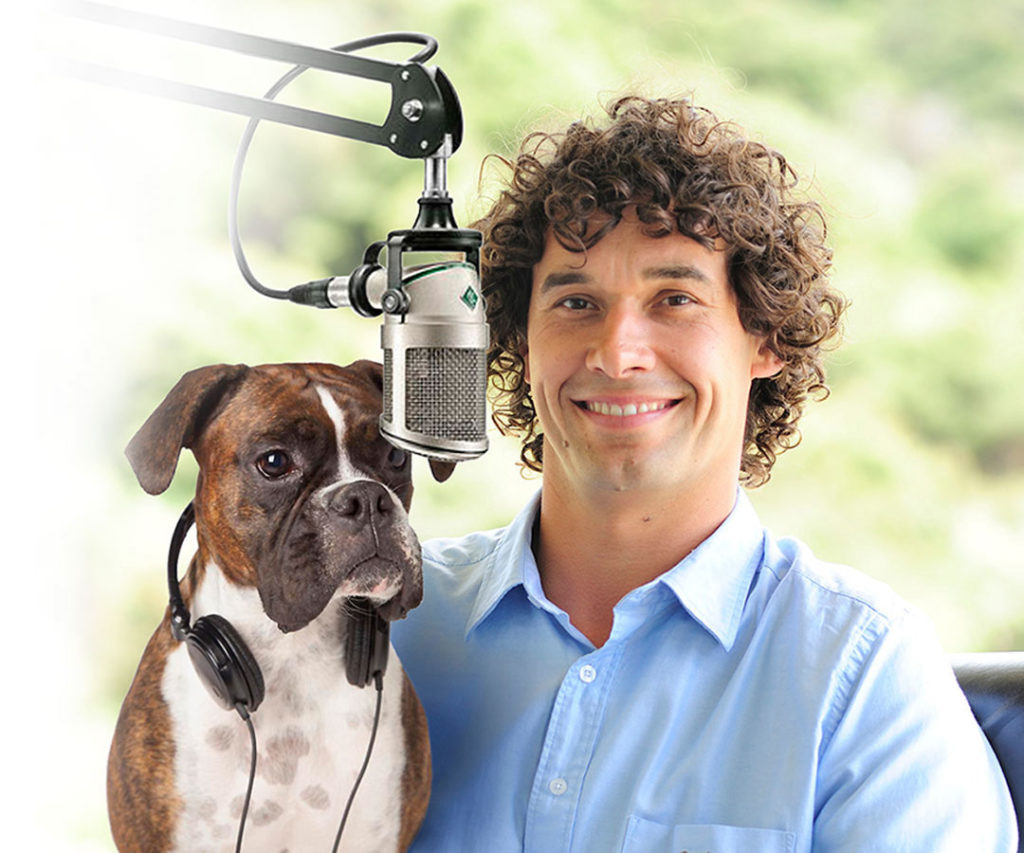
SPCA TO HEAR HOW TO DEAL WITH ‘BIG, BAD, DANGEROUS DOGS’
A soft voice, a calm manner and an understanding of ‘dog language’ can help transform the angriest, stroppiest or most neurotic canine into a contented, loving companion, according to ‘Doggy Dan’. What aren’t needed, are water sprays, check chains or, least of all, electric collars.
The Auckland-based trainer and dog behavioural specialist will be speaking to the Royal New Zealand SPCA’s annual conference in Rotorua this weekend on the subject of ‘big, bad, dangerous dogs and what to do with them’. However, Dan doesn’t think big dogs are all that much different to little dogs. Nor does he think that the overwhelming majority of dogs are bad at all.
“The only really significant difference to small dogs is that the bigger ones can do more damage when they get out of hand. But no dog should get truly out of hand if you understand their language and psychology and send them the right message. People often speak to me about their dog being a ‘bit naughty’. But what’s really happening, most of the time, is that the dog is doing its best to behave appropriately but has got completely the wrong impression of what’s required,” he says.
“Around 99.9 percent of the dogs I come across have become convinced that they’re the pack leader, with all the responsibilities that go with that role in the canine world. So, naturally, they’re going to try to protect their owners from threats like wheely- bins, cyclists or other dogs and people. That’s what a good pack leader does.
“Communicating your own role as leader involves easy-to-learn techniques and a calm, gentle, soft manner. A dominant dog doesn’t need to make a lot of noise to get its way and neither should you. Essentially, you need to communicate not just that you’re in charge but that you know what you’re doing and that the entire dog needs do is leave you to make the decisions.
“Dogs are pack animals and instinctively understand hierarchy and that the good of the pack comes first. So a lot of their anxieties evaporate when they know a responsible leader is in charge and they can just relax, chill out, be friendly and start enjoying life. You’ll never convince them of that by shouting and screaming words they don’t understand or by spraying them with water, let alone by fitting on a collar that gives them electric shocks,” he adds.
“There would be far less talk of big, dangerous dogs if humans treated them the right way, gave them the respect that’s due to them but convinced them they weren’t the pack leader and didn’t need to be in charge. Almost all the big and apparently dangerous dogs I’ve had dealings with have responded well to this approach. And sometimes it’s taken just hours, or even minutes, to effect a total change of behaviour,” says Dan.
The Royal New Zealand SPCA’s annual conference commences at 9.00 am on Saturday 1st May at the Sudima Hotel on Lake Rotorua (1000 Eruera Street). The gathering’s opening address will be given by Tauranga MP, Simon Bridges, who is the originator of the bill currently before parliament to toughen sentences in animal cruelty cases.
The conference will also see the launch of the SPCA’s ‘Saving Lives’ campaign, a multi-strand initiative aimed at preserving the lives of as many animals as possible by SPCA branches across New Zealand.
For further information, please contact
www.doggydan.co.nz
Doggy Dan
09 411 8535
027 27 53700
Robyn Kippenberger
National Chief Executive
Royal New Zealand SPCA
Work 64 9 8276094
Mobile 64 274 197722
email ceo@rnzspca.org.nz
Released by Ian Morrison, Matter of Fact Communications,
Tel: 09 575 3223, Fax: 09 575 3220, Email: ianm@matfact.co.nz
This material has been sent to you because your email address is a matter of record, you are working in a news gathering and dissemination role and this material may be of interest to you. If you do not wish to receive further material from Matter of Fact Communications, please communicate this information to us, using the contact details given above.







